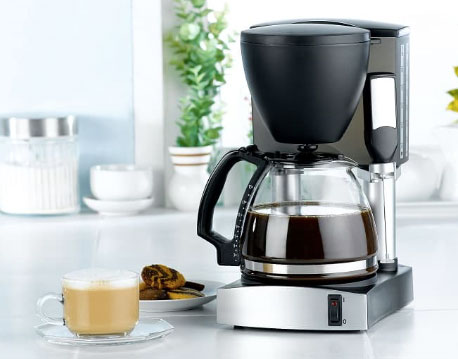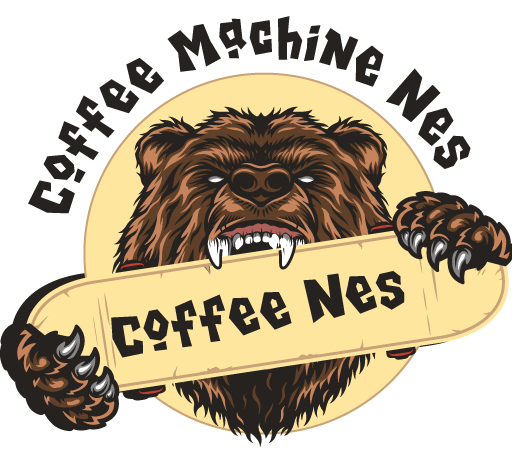Does A Coffee Maker Boil Water? Brewing a delicious cup of coffee starts with having the right equipment. One important decision to make is whether you want to buy a regular coffee maker or an espresso machine.
An integral part of both types of machines involves boiling water – but it might surprise you to learn that not all coffee makers boil water! If you’re trying to decide between these two options, understanding which one boils water and what this means in terms of brewing quality can help guide your choice.
In this blog post, we’ll explore exactly how and why some machines don’t require the same level of heat as others, and ultimately help you find the ideal tool for your daily java needs.

What Is The Boiling Point Of Water?
The boiling point of water is 212°F (100 °C). In order to create steam, the liquid must reach this temperature or higher. The process involves heating the liquid until its molecules become so agitated that they start to break away from each other and form bubbles of gas.
Related article: Can You Grind Coffee Beans In a Ninja?
Does A Coffee Maker Boil Water?
Most standard coffee makers do not boil water. Instead, they use a process called “infusion,” which means that the hot water is passed through the grounds at temperatures below 212°F (100 °C). This allows for more flavor extraction with less bitterness and acidity.
Why Is Boiling Water Bad For Your Brew?
When water is boiled, it can strip away the delicate flavors of your coffee. Prolonged boiling also causes acidity and bitterness to build up in your cup, resulting in a flat or sour-tasting brew. In addition, boiling may cause over-extraction which leads to bitter oils being released from the ground beans into your cup.
Do Espresso Machines Boil Water?

Yes! Unlike regular coffee makers, espresso machines must heat water to temperatures greater than 212°F (100 °C) in order to create steam. This higher temperature is necessary to extract the full range of flavors and aromas from the ground beans. In addition, most espresso machines also use a pressurized system to force the hot water through the grounds, leading to an even more flavorful cup of coffee.
Which Coffee Equipment Can Boil Water?
The main difference between brewing coffee and boiling water is the temperature. Regular coffee makers are designed to steep grounds in hot (but not boiling) water for a longer period of time, while espresso machine need higher temperatures and pressure to extract the maximum flavor from their beans.
How To Boil Water In A Moka Pot Or Percolator?
While most home coffee makers don’t boil water, there are two methods of brewing that require boiling: Moka pots and percolators. Both machines use a separate chamber to heat and pressurize the liquid until it reaches temperatures above 212°F (100 °C).
How long does it take to boil water in a coffee maker?
The time it takes to boil water in a coffee maker will depend on the type of machine and how much water is being boiled. Generally, it can take anywhere from 1-4 minutes for regular coffee makers to reach boiling temperatures and slightly longer for espresso machines. To save time, some machines come with temperature presets that allow you to get hot water in a matter of seconds.
Do I need a water filter for my coffee maker?
Yes, using a water filter is important for any coffee maker. Water filters help to reduce impurities and unwanted minerals from your water which can adversely affect the taste of your coffee. Depending on the type of machine you have, you may need a different type of water filter so be sure to consult the manufacturer’s instructions before purchasing one.
Does a Keurig Boil Water?
No, Keurig machines do not boil water. Instead, they use a system called “K-Cup technology” which involves pre-packaged pods of ground coffee that are inserted into the machine and heated in order to produce the perfect cup of joe.
How Does A Coffee Machine Heat Water?
Most coffee machines use a heating element to heat the water. This element is usually made of metal and is either built into the machine or connected to it via an electrical cord. As the water passes through this heated element, it slowly starts to reach boiling temperatures.
Does A Coffee Maker Purify Water?
No, coffee makers do not purify water. If you want to ensure your water is free from impurities and harmful chemicals, it’s best to use a water filter before brewing your coffee. This will help to improve the taste of your coffee and ensure that every cup is as delicious as possible.
Can you use a coffee maker as a kettle?
Yes, you can use a coffee maker to boil water. Most regular coffee makers have an option that allows you to heat the water without using any ground beans. This is a great way to quickly boil water and make tea or French press coffee without having to wait for the entire brewing process.
Can you boil eggs in a coffee maker?
The temperature of the water may not be consistent enough for proper egg boiling and there is also a risk of burning or overcooking the eggs. It’s best to use a stovetop or electric kettle for boiling eggs.
Can you make tea in a coffee maker?
Yes, you can make tea in a coffee maker. You simply need to fill the machine with water and place a tea bag or loose-leaf tea into the brew basket before pressing start. Most machines have an adjustable temperature setting that allows you to adjust the heat for optimal brewing.
Conclusion
While it’s true that coffee makers don’t technically “boil” water, they do use hot plates to heat water up to the boiling point. This is usually between 195-205 degrees Fahrenheit.
So, while your coffee maker may not be boiling water, it is heating it up to a temperature that will produce great tasting coffee.
FAQs
Does A Coffee Maker Boil Water?
Many people believe that all coffee makers boil water – but this isn’t actually true! There are two main types of coffee machines to consider, and only one of them boils water.
The first is a standard drip coffee maker, which requires hot water to steep the grounds. This type of machine heats up water to nearly boiling temperatures, but it doesn’t actually boil the water. This means that your end result won’t be as strong or full-bodied as espresso made by an espresso machine.
The second type of coffee maker is an espresso machine, which creates a much stronger cup of coffee than drip coffee makers. These machines use powerful pumps and heating elements to create steam and pressure to force hot water through the coffee grounds. This process requires boiling water, so it creates an intensely flavored espresso shot – perfect for cappuccinos, lattes, and other espresso-based drinks!
Do coffee makers make boiling water?
As we’ve seen, not all coffee makers boil water – only espresso machines rely on this process to create a high-quality cup of coffee. Whether you prefer the lighter taste of drip coffee or like the bold flavor of espresso shots, understanding which type of machine is best suited for your needs can help you make an informed decision when selecting a coffee maker.
Does a coffee maker sterilize water?
No, coffee makers are not designed to sterilize water. While most machines do heat the water up to nearly boiling temperatures, they don’t reach a temperature high enough to actually sanitize or sterilize any impurities in the water. If you’re concerned about drinking pure and safe water, it’s best to use filtered or purified water in your machine rather than tap or well water. This will ensure that your coffee is clean and free from any bacteria or other contaminants.
What temperature should my coffee maker be set to?
The ideal temperature for brewing a cup of coffee depends on the type of machine you’re using. For a drip coffee maker, the optimal brewing temperature falls between 195°F – 205°F (90°C – 96°C). For espresso machines, the ideal temperature for brewing is between 197°F – 204°F (92°C – 95.5°C). Additionally, it’s important to note that many coffee makers have adjustable settings so you can customize your brew strength and flavor. Experimenting with these features can help you find the perfect cup of coffee for your tastes.
I’m Jeff Olson, and I love coffee. In fact, I’m something of a professional about coffee. I own and operate coffeemachinenes.com, one of the web’s top resources for everything coffee-related. I’m also an avid home barista, and enjoy experimenting with different brewing methods and flavor profiles. When I’m not nerding out about all things coffee, you can find me playing guitar or spending time with my wife and kids.

